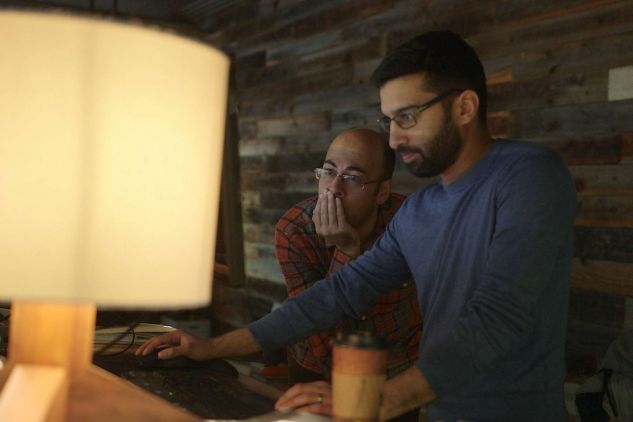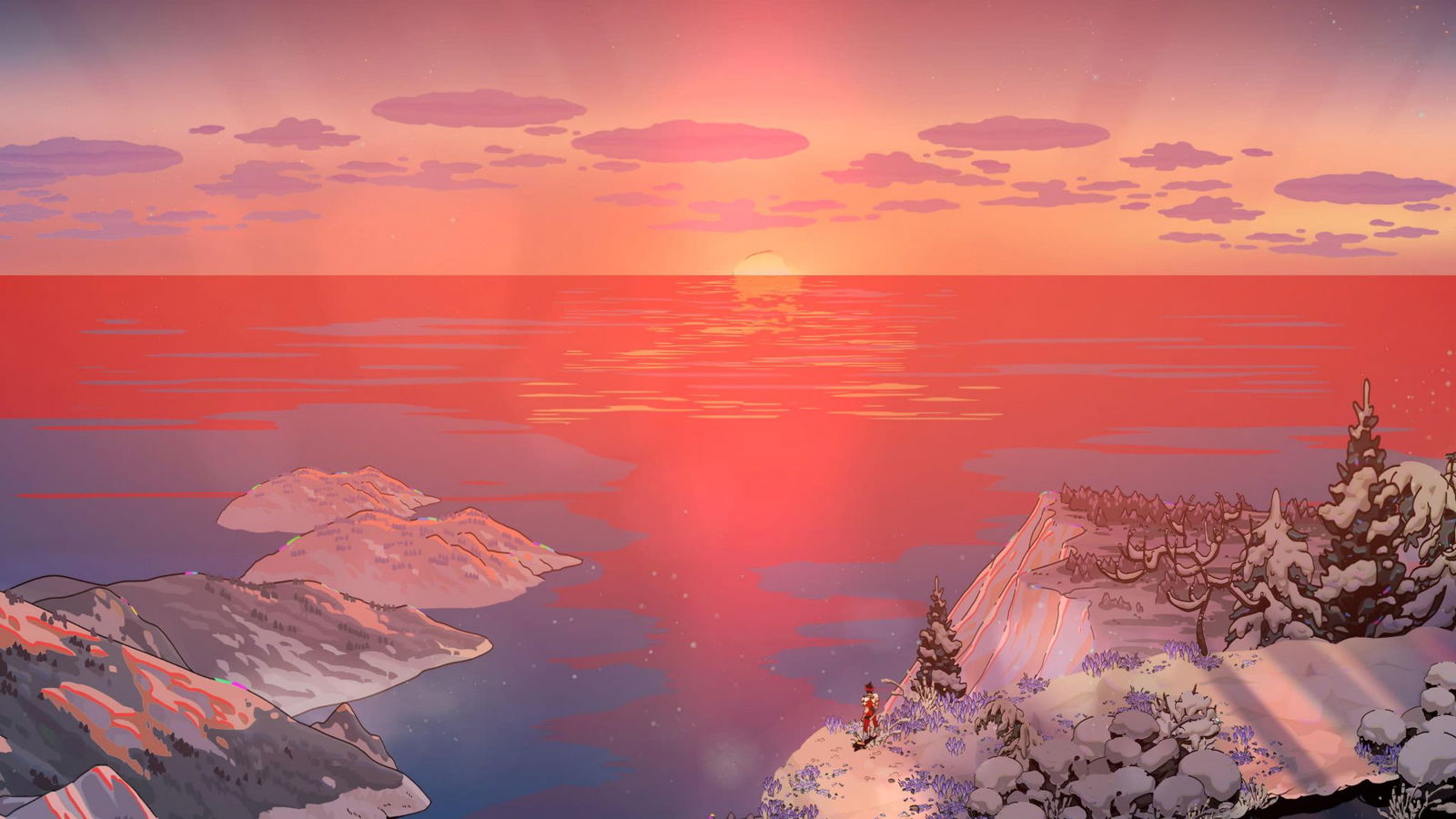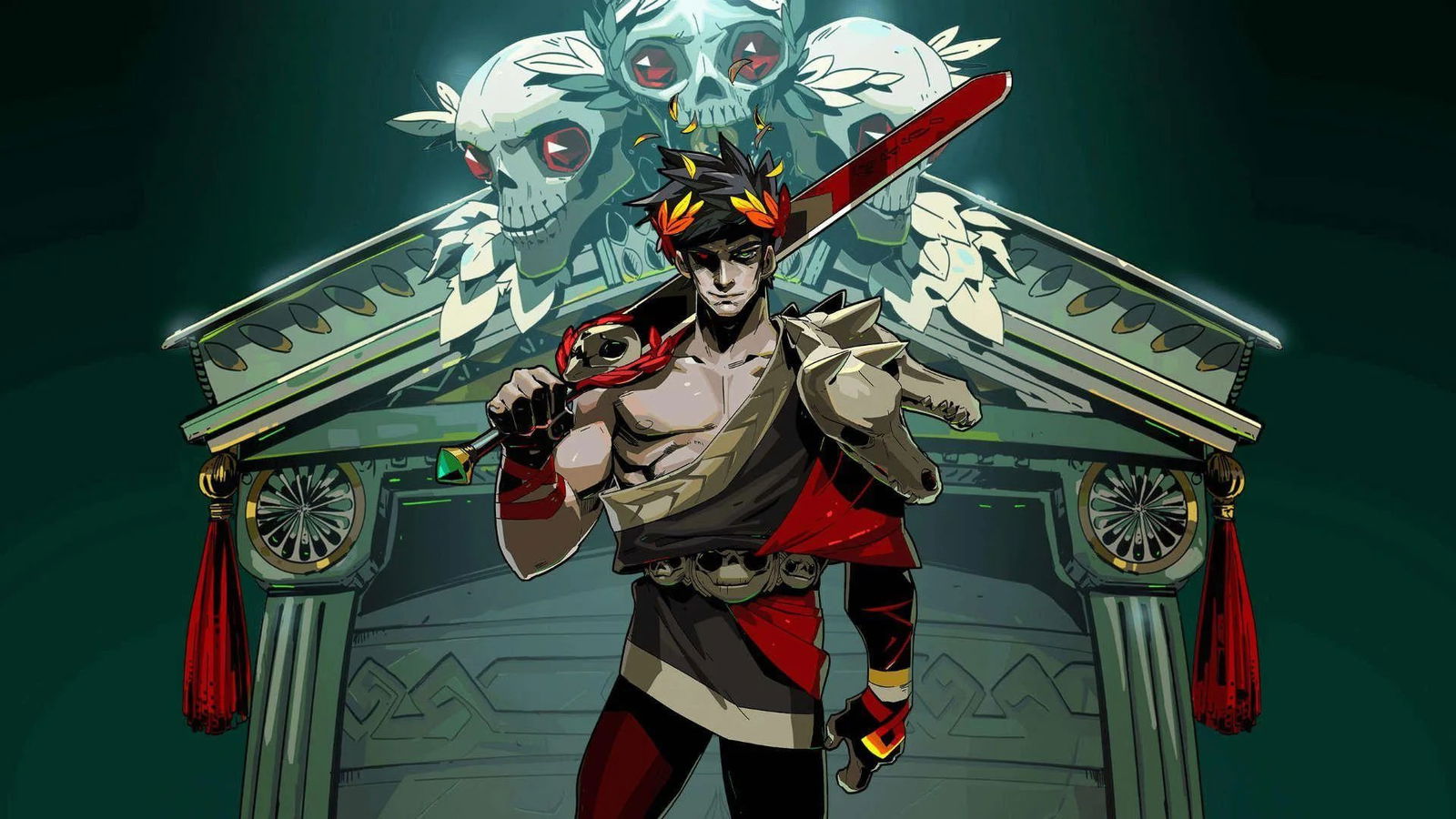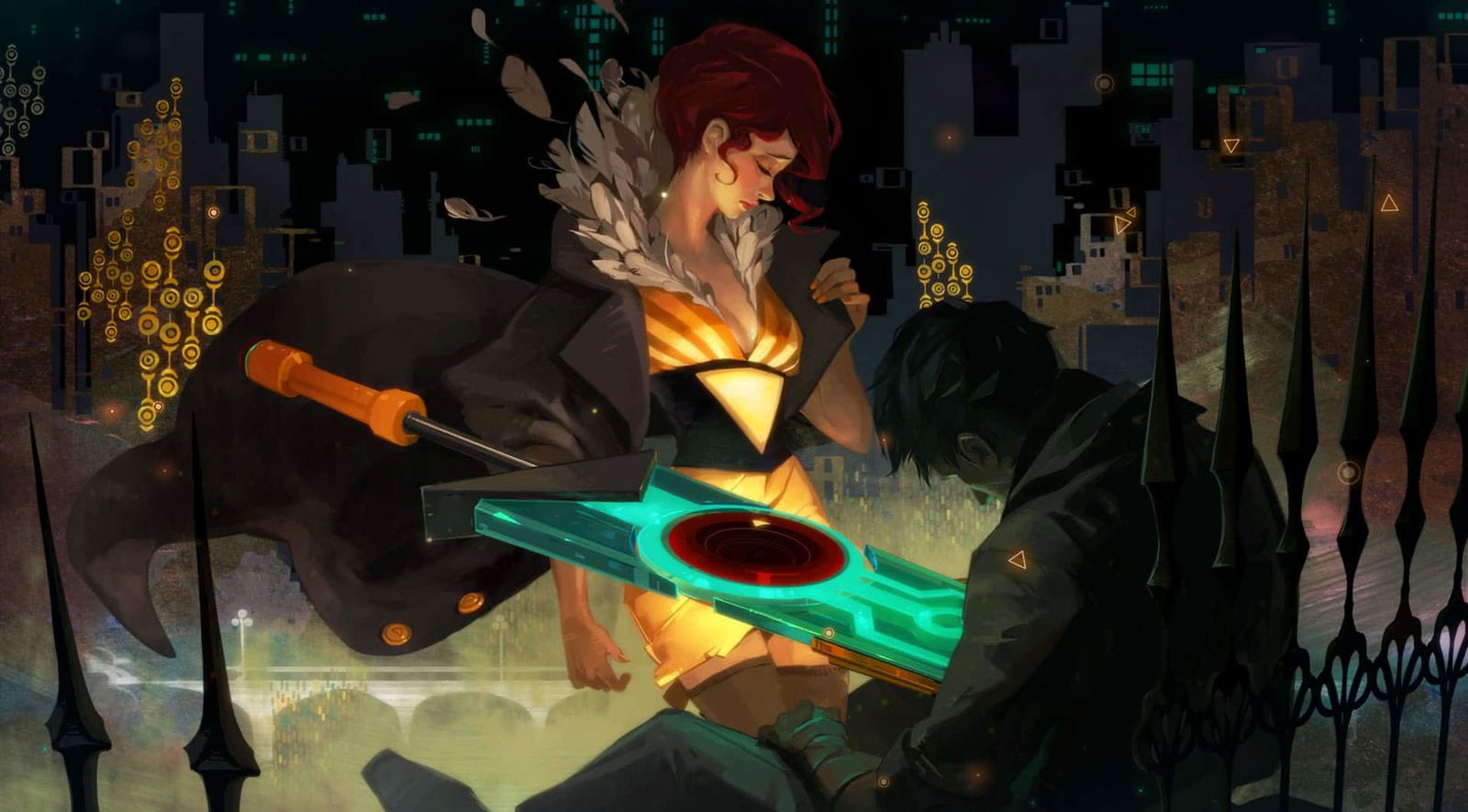Hades has intrigued me since the day it launched out of early access. This intriguing combination of roguelike gameplay and mythical storytelling seemed almost too good to be true. Of course, then I found out who was developing it and I came to realise why it was so good. Supergiant Games is behind some of the most beloved, most experimental, most perfect games ever released and Hades is yet another entry in their storied catalogue. But I wanted to talk to somebody at Supergiant, to really pick their brains how some of their choices with Hades, how difficult the ports were, COVID-19 and future plans. To that end, I spoke with Greg Kasavin, the creative director at Supergiant Games, who took time out of his busy schedule to answer a few questions of mine.
RE: I’m very curious about the creative process behind Hades. Each of your games—Transistor, Pyre, Bastion, and Hades—are so distinct, not only in genre but in concept. What led you and the team to choose Greek mythology as the foundation for Hades? Was the idea of using Greek mythology decided before making the main character the son of Hades? Also, what influenced the choice to make Hades a roguelike? Were there any gods you wanted to include but couldn’t?
GK: The idea to base a game on Greek mythology came from a few different directions, but it wasn’t our starting point. We began brainstorming for Hades a few weeks after the release of Pyre in July 2017, wanting a change of pace. We were excited about developing a game through Early Access and decided on a roguelike dungeon crawler focused on replayability. This idea felt like a leap from our previous games, and we were particularly interested in challenging ourselves to infuse this genre with the narrative depth and worldbuilding that’s core to our work. We saw a lot of untapped potential for the roguelike genre to explore new storytelling directions.
Greek mythology naturally aligned with the mechanics of a roguelike. Since these games involve cycles of gaining and losing powers, we felt it was the perfect framework for Olympian gods to play a role. Additionally, we were excited to adapt an established mythology instead of creating a setting entirely from scratch, which had been our approach in previous titles. The process was thrilling and a bit intimidating!
For character selection, we included the gods and characters that best served the story and gameplay we envisioned. We ended up with a cast of 30 fully voiced characters, which included everyone essential to our narrative. While there are plenty of fascinating figures in Greek myth, we chose a specific set to keep the story focused. For the Olympians, we chose gods that fit the gameplay and narrative, opting for some less common figures, like Demeter, over more recognizable ones, such as Apollo, because they connected well with our storyline.
RE: The past year and a half has been challenging globally. How did COVID-19 impact Hades’ development? Did any ideas need to be scrapped due to remote work constraints?
GK: We were fortunate to avoid major disruptions due to the pandemic, which helped us maintain our momentum. Personally, it was motivating, as I felt grateful to continue working with such a talented team and to receive positive feedback from players in Early Access. Knowing that the game was providing comfort to people helped us stay focused on making Hades the best it could be. While the pandemic took its toll, we were lucky it didn’t bring development to a halt.
As a relatively small semi-distributed team, we were already experienced with remote work, so from a logistical standpoint, it wasn’t as disruptive for us to switch to fully remote work as it must have been for many larger organizations. Nonetheless, of course, it still weighed heavily on all of us, and introduced some scary setbacks. For example, we still had a ton of voice recording left to do, and that was a process we were handling mostly from our studio in San Francisco. We had to get scrappy with it, and Darren Korb our audio director quickly made sure we got good microphones out to all our actors, and we were able to continue recording that way.
RE: The music in Hades is beyond amazing. What was Darren Korb’s process behind the tracks? Was he given a brief or was this all based upon the music he wanted to create? Currently, I’m thinking specifically of God Of The Dead and how it encapsulates the climactic nature of the fight and wondering whether or not you had a brief stating that you wanted something that had that vibe, or whether Darren looked at the fight and then made the music.
GK: It’s great to hear you enjoyed the music in Hades! Music has always been one of the not-so-secret weapons in all our games, due to how powerful it can be in creating an atmosphere or driving home key moments in a story, and also of course due to Darren’s amazing talents as a composer and musician. I’ve worked closely with him since the Bastion days, so from the very start of a project we’re thinking about how music can fit into the experience, what might be opportunities to do things with music that we’ve never done before, and so on.
Darren typically starts creating music based on our impressions of what the tone and atmosphere of our games might be like even before we have much of anything else to show, and that music often helps crystalize the vibe we want. So we definitely talk and brainstorm a lot! Darren will then go off and do his thing, I’ll often help with getting the music playing where it’s supposed to in the game itself, and the results are what you hear.
For “God of the Dead”, we definitely knew we wanted that to be a big, climactic-feeling piece, and in it, Darren purposely reprises the main theme, which includes motifs representing both Zagreus and Hades. It was fully intended to be ‘final boss music’ and have that kind of energy and intensity. The piece called “The Unseen Ones” came together late in development when we added an optional, more challenging final boss encounter. We wondered how could “God of the Dead” go even harder, and this piece was the answer — Darren had the inspired idea of collaborating with a couple of virtuoso guitar masters on this amazing solo-duel that’s part of the piece. It’s a level of guitar shredding that Darren admits is beyond his own capacity! If you haven’t heard that one, I think it’s amazing, even among all the other fantastic tracks Darren wrote.
I want to add, that Darren is just an incredibly talented guy, and it’s an honor to work with him. Not only does he make all our music, he makes all our sound effects and also directs all our many voice-recording sessions, in addition to voicing Zagreus and Skelly himself!
RE: Hades was recently ported to consoles. Was it a difficult experience to port the game over, or was it relatively simple? I’ve noticed that both Microsoft and Sony had large amounts of promotion for the game, what was the back and forth between Supergiant and them? Were they easy to work with, and what was the decision behind releasing the game on Xbox Game Pass? Is a port something you’d consider for Transistor and Pyre, which aren’t available on the Xbox family of consoles?
GK: Porting games is never quick or easy for us. It always requires a lot of dedicated focus and attention. With Hades, early on in development, we were quite sure we would eventually want to bring the game to different platforms, so we did a lot of work on our tech to make it as portable and high-performance as possible so that the porting process would be as smooth as could be. And even still it takes a while to get right.
Since we’re a relatively small team, even just making the decision to bring one of our games to a new platform is a really big deal for us, because we know it’s going to take a while to make a new version, and then we’re going to have to support that version for a long time beyond launch. We’re really fortunate that Microsoft and Sony were excited to have Hades on their platforms since we weren’t there with the game on day one. It just wasn’t possible for us to have versions of the game on every platform under the sun without cutting directly into the quality of the game itself, and that’s not a trade we’re interested in making. Since we’ve been around for more than 10 years now as an independent studio, we’re lucky to have been able to foster positive working relationships with each of the major console platforms.
Regarding Transistor and Pyre on Xbox, while we haven’t ruled anything out for the future, the fact that we haven’t created these versions is largely a factor of the time and resources required to get it right. All these decisions come with an opportunity cost, meaning if we work on one thing, we’re not working on another thing. For example, Hades exists because, after Pyre’s launch in 2017, we made a hard decision to focus our efforts on a new project, rather than bringing Pyre to more and more platforms. You may wonder ‘why don’t you just hire more staff and do it all, and the reason is, staying small is really important to how we operate. It means having to make some difficult trade-offs, but it also leads to games like Hades.
-
Transistor, released in 2014, was Supergiants’ second foray into video games.
RE: I know it’s extremely early, given the pandemic and the recent release of Hades on consoles. But have you and the team had any ideas for your next game? If so, is there anything you can share with us?
GK: It’s too early for me to say what’s next for us as yet, other than in the broadest strokes: We definitely want to stick together as a team and keep making games that are true to our values, whatever form those games might take. We work on one big new project at a time, and just want to keep doing what we’ve been doing. Our team has over 20 members now, though still includes all seven of the original staff that created Bastion. We really value being able to stick together for the long haul and creating games that are surprising and exciting to us yet play to our strengths.
I’ll be the first to admit it will be difficult for us to come up with something that resonates with as many people quite like Hades has, but we’ve always been pretty good about trying to avoid the trap of constantly trying to outdo our past work. When speaking about it internally, we say we want every game we make to be capable of being someone’s favorite game of ours. For us, it’s really about making each game specific enough that it could catch a player in the right place at the right time and leave a lasting and positive impression, and for our part, to give us lots of exciting new creative challenges. I personally love all the games we’ve made and just want to keep making stuff in that vein, for as long as I can, for as long as my colleagues are up for it, and for as long as our players will support us.
RE: Well, once again Greg, thank for you taking time out of your busy schedule. We’re looking forward to seeing what Supergiant Games does next.





